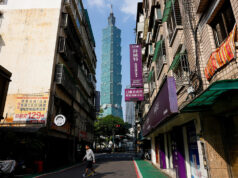NEDA hopes to resolve regulatory, commercial conflicts at NFA, PPA
THE NATIONAL Economic and Development Authority (NEDA) will seek to correct the Philippine Ports Authority’s (PPA) dual regulatory and commercial functions in the National Competition Policy due out this year.
The policy will also modify the functions of the National Food Authority (NFA), which is in the spotlight after its rice buffer stock dwindle below levels required by law — giving poorer consumers no alternative to higher-priced commercial grains.
“The NFA is both a regulator as well as merchandiser because it has a commercial activity so it’s really the conflict between being a regulator and undertaking commercial activity at the same time,” Socioeconomic Planning Secretary Ernesto M. Pernia told reporters on the sidelines of the Philippine Economic Briefing in Clark, Pampanga on Friday.
“PPA is also regulating and trying to promote the performance of ports,” Mr. Pernia added.
“If the key purpose of the GOCC (government-owned and controlled corporations) is to earn income, then it should be just earning income and not regulation — in other words, just drawing the line between commercial activity or proprietorship and regulation,” Mr. Pernia said.
To address this, he said that the government is currently preparing a comprehensive competition policy that also applies for state-owned firms — even as Republic Act No. 10149 or the GOCC Governance Act already provides for the clear separation of their regulatory and proprietary activities.
The Philippine Competition Act, or Republic Act No. 10667, tasks the Philippine Competition Commission to assist NEDA in formulating the National Competition Policy, which will “provide a guiding framework for both the private and the public sector,” which will in turn, ensure competitive neutrality to allow consumers “have better and wider choices of goods and services.”
Asked for a time line on implementing the National Competition Policy, Mr. Pernia said: “we should do it right away because we are really anxious in getting the economy to sustain its performance and even accelerate.”
“The President can really do a lot of things by using moral suasion on the legislature,” added Mr. Pernia.
The government expects the economy to grow 7-8% this year until 2022, faster than the 6.7% reading in 2017.
According to the World Economic Forum’s Global Competitiveness Index, the Philippines’ rank improved to 56th of 137 countries last year, from 57th in 2016.
The government is targeting a ranking in the top third by 2019. — Elijah Joseph C. Tubayan



